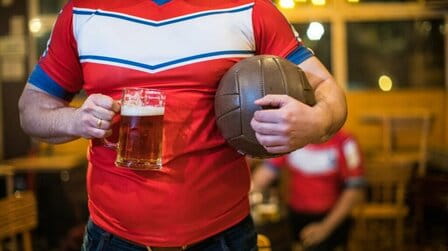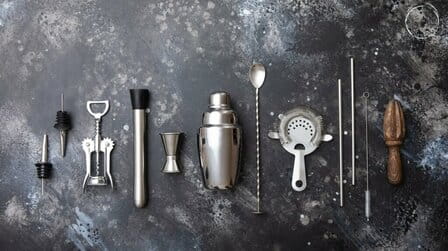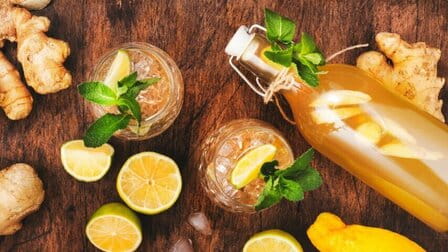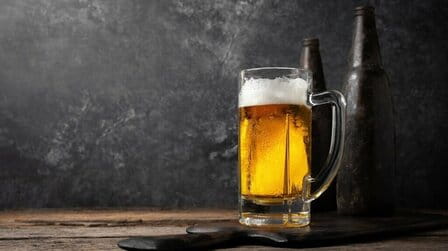Cleaning and reusing beer bottles can be a great way to reduce waste and save money on beer. Many people wonder if vinegar can be used to clean and sanitize beer bottles for reuse. Here is a detailed look at using vinegar to clean beer bottles.
Who Should Consider Cleaning Beer Bottles?
- Homebrewers can clean and reuse beer bottles from commercial beers to bottle their homemade brews. This saves money compared to buying new beer bottles.
- Crafters can clean beer bottles and reuse them for craft projects like building bottle trees, wind chimes, lampshades, and more.
- Anyone who wants to reduce waste and recycle more can clean and reuse beer bottles rather than throwing them away.
- People who frequently drink beer at home can clean and reuse the bottles to save money.
- Bars, restaurants, events venues, etc. that serve draft beer can clean and reuse beer bottles to reduce waste.
What Are The Benefits of Using Vinegar?
Using vinegar to clean beer bottles has several advantages:
- Vinegar is a natural cleaner and sanitizer that kills bacteria, viruses, mold and germs without harsh chemicals.
- It removes beer residue, dirt, grime, and labels easily from the bottles.
- Vinegar is inexpensive, readily available, and is something many people already have at home.
- It is earth-friendly and better for the environment than using toxic cleaners.
- Vinegar is safe for cleaning glass, won't scratch it, and helps restore shine.
- It eliminates odors leaving bottles smelling fresh.
When Should You Clean Beer Bottles?
Ideally, beer bottles should be cleaned soon after use before residue dries and hardens. The longer you wait, the harder it becomes to clean them.
Steps:
- Rinse bottles immediately after use to remove excess beer residue.
- Let the bottles soak overnight in water to loosen any stuck-on debris.
- Clean and sanitize with vinegar the next day. Air dry upside down.
- Once fully dry, cap the bottles or store upright to prevent dust and pests from getting inside.
- Reuse bottles within a few months for best results.
How Do You Clean Beer Bottles With Vinegar?
Cleaning beer bottles with vinegar is a simple process:
Supplies Needed
- Beer bottles
- White distilled vinegar
- Bottle brush
- Bottle jet or tubing
- Bucket or tub
- Towels
- Bottle drying rack (optional)
Steps
- Rinse bottles immediately after use with warm water to remove excess beer residue.
- Fill bottles about 1/4 full with vinegar and fill bucket/tub with vinegar diluted with some warm water.
- Place bottle brushes, jets, and soaking bottles into the tub. Let bottles soak a minimum of one hour up to overnight.
- Scrub bottles thoroughly with bottle brush and vinegar solution. Target any stubborn dried-on debris.
- Use bottle jet to spray vinegar inside bottles and rinse thoroughly with clean water.
- Sanitize bottles by spraying/filling with undiluted vinegar again. Let sit 10 minutes.
- Drain, rinse well and place upside down on rack to air dry fully before use.
Tips
- Soak labels in vinegar solution to help remove easily. Use scraper if needed.
- Combine vinegar with baking soda and warm water to boost cleaning power.
- Use hot water for final rinse to sanitize.
- Placing bottles on drying rack neck-down prevents dust and bugs inside.
- Store properly cleaned bottles up to 6 months before reuse.
Pros of Using Vinegar to Clean Bottles
- Kills bacteria and sanitizes
- Removes stubborn beer residue
- Eco-friendly and non-toxic
- Readily available and inexpensive
- Restores shine to glass
- Eliminates odors
Cons of Using Vinegar
- Can leave slight vinegar smell if not rinsed fully
- Extended soaking can dull labels
- Not as powerful on hard water deposits as other cleaners
- Won't remove some adhesives or paints
- May need to scrub more than other harsh cleaners
Alternatives to Vinegar for Cleaning Beer Bottles
While vinegar is the most popular eco-friendly cleaner, other options include:
- Baking Soda - Abrasive to help scrub off dried beer residue
- Hydrogen Peroxide - Disinfecting and deodorizing
- Beer Line Cleaner - Powerful cleaner made for beer systems
- PBW or Oxyclean - Caustic cleaners that require rinsing
- Star San or Iodophor - No-rinse sanitizing solutions
- Dish Soap -Cuts grease and paired with warm water
- Bottle Washing Machine - Efficient and automated option
Step-By-Step Guide to Reusing Beer Bottles
Follow these steps for cleaning and reusing beer bottles successfully:
- Choose Bottles - Inspect for chips, cracks, or defects. Avoid screw tops. Select easy to clean bottles.
- Remove Labels - Soak in warm water to loosen adhesive. Scrape off labels.
- Clean Bottles - Use vinegar method above or preferred eco-friendly cleaner.
- Sanitize - Use sanitizing solution like Starsan or diluted bleach.
- Dry Bottles - Air dry fully upside down on bottle drying rack.
- Cap Bottles - Seal cleaned bottles with caps or corks to prevent contamination.
- Use for Storage - Fill cleaned bottles with your homemade brews, water, juice, etc.
- Store Properly - Keep bottles dust and pest free until use. Use within 6 months.
- Enjoy Reusing! - Get many uses out of bottles before recycling.
Tips for Best Results Reusing Beer Bottles
- Clean bottles as soon as possible after use
- Check for defects like cracks before cleaning
- Use a bottle brush to target dried-on gunk
- Rinse very thoroughly after soaking in vinegar
- Sanitize bottles after cleaning for contamination prevention
- Make sure bottles are completely dry before capping
- Use new caps or corks - don't reuse old ones
- Prevent dust, insects, and light from entering capped bottles
- Label reused bottles with contents and date
- Don't reuse screw top bottles - the tops won't seal properly again
Reusing bottles is very rewarding! Follow these tips and with some practice, you can save loads of money and reduce waste.
FAQ About Cleaning Beer Bottles with Vinegar
Can any beer bottles be reused?
Most standard 12 oz or 22 oz pry-off beer bottles can be reused if properly cleaned. Avoid screw tops. Inspect bottles closely for chips or cracks first.
How long does it take to clean bottles with vinegar?
Plan on at least 1 hour for soaking and active scrubbing time. Bottles may need to soak overnight if very dirty. Drying time takes 6-12 hours.
How many times can you reuse a beer bottle?
Bottles can typically be reused up to 10 times if cleaned and sanitized properly between each use.
Does vinegar remove beer labels?
Vinegar will help soften glue to remove labels more easily. You may need to use a label scraper tool for stubborn labels.
How do you get rid of vinegar smell in bottles?
Rinse very thoroughly with hot water after cleaning with vinegar. Baking soda also helps remove odors. Air drying fully helps dissipate any smells.
Conclusion
Cleaning and reusing beer bottles with vinegar is an easy, eco-friendly way to reduce waste and save money. Vinegar effectively removes residue and sanitizes bottles for reuse. With proper cleaning, sanitizing, and storage, beer bottles can be reused many times over. Follow the tips above to start reusing your beer bottles today!

















